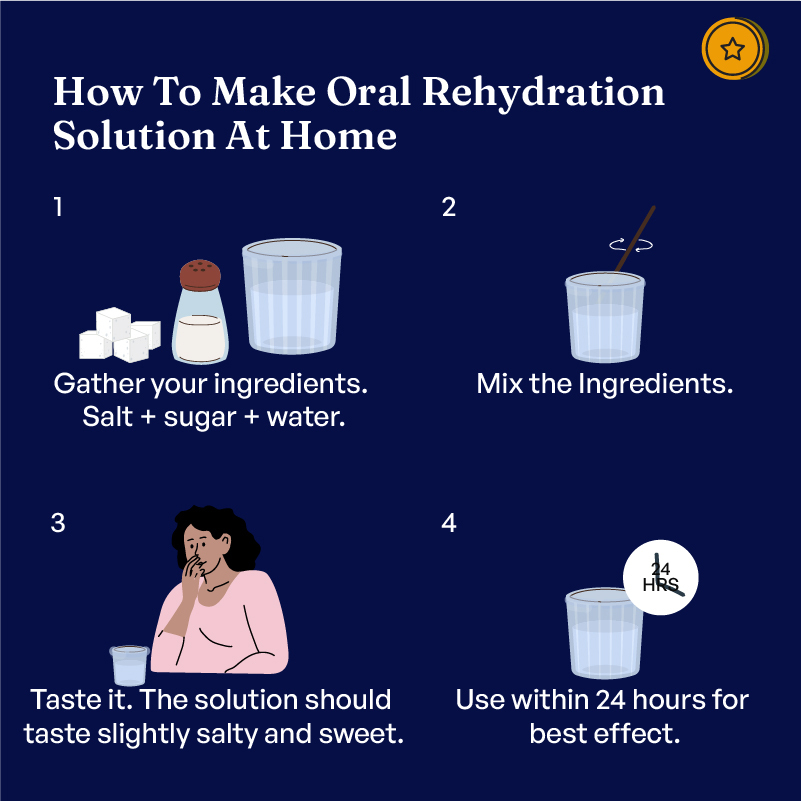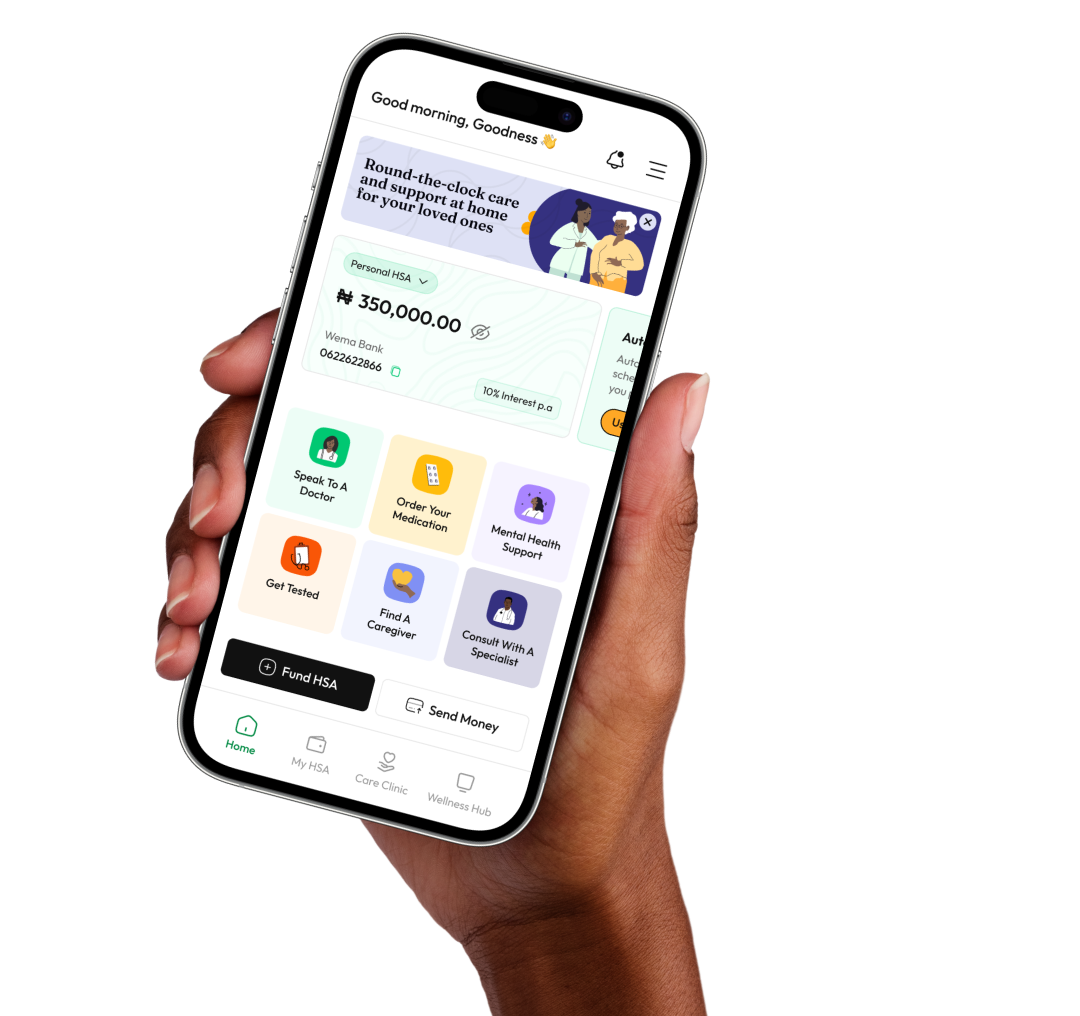As the rains return before the harmattan break that ends the year, waterborne illnesses will spike. It’s important to prioritise our health during this time. Symptoms like frequent diarrhoea, vomiting, and excessive sweating can quickly lead to dehydration, leaving you feeling weak, dizzy, or even lightheaded. Without proper hydration, these symptoms can worsen, making recovery much harder. That’s why knowing how to combat dehydration with a simple, homemade oral rehydration solution (ORS) is important.
In this article, we’ll explore what an oral rehydration solution (ORS) is, when it should be used, how it works, and, importantly, how to make oral rehydration solution at home using ingredients you can easily find in your kitchen.
What is oral rehydration solution (ORS)?
Oral rehydration solution (ORS) is a simple mixture of water, salt, and sugar that helps replenish lost fluids and electrolytes in our bodies. It’s especially useful during bouts of diarrhoea or vomiting, which can lead to severe dehydration if not treated promptly. ORS is designed to be easy to absorb, making it an effective way to restore hydration quickly.
When should oral rehydration solution (ORS) be used?
You should use an oral rehydration solution in the following situations:
- Diarrhea: Whether from food poisoning, an infection, or dietary indiscretion, diarrhoea can lead to significant fluid loss.
- Vomiting: If you’re experiencing nausea or have been vomiting, ORS can help replace lost fluids.
- Heat exhaustion: Spending long hours outside in the sun can lead to dehydration, making ORS a good option to rehydrate.
- Illness: When dealing with fevers or infections that cause excessive sweating, ORS can help maintain hydration levels.
How does oral rehydration solution (ORS) work?
The effectiveness of ORS lies in its composition. The sugar (glucose) helps the body absorb sodium and water more efficiently through the intestinal walls. This means that with every sip of your homemade oral rehydration solution, you’re not just replacing lost water; you’re also replenishing essential electrolytes that help maintain bodily functions.
How to make oral rehydration solution (ORS) at home
Making your own oral rehydration solution at home is easy and requires just a few ingredients:
Ingredients
- Clean water: 1 liter (about 4 cups)
- Salt: 6 teaspoons (about 3 grams)
- Sugar: 8 teaspoons (about 40 grams)
Instructions
Step 1: Gather your ingredients. Make sure you have a clean container and measuring cups ready. Cleanliness is key to preventing further illness.
Step 2: Mix the ingredients. In your container, add 1 litre of clean water. Then, add 6 teaspoons of salt and 8 teaspoons of sugar. Stir the mixture until the salt and sugar completely dissolve.
Step 3: Taste it. The solution should taste slightly salty and sweet. If it’s too salty, add more water; if it’s too sweet, add a bit more salt. Adjust it to your taste while ensuring the basic proportions remain the same.
Step 4: Store properly. If you’re not using the solution immediately, cover it and store it in a cool place. Use it within 24 hours for the best effect.

Dosage guide according to weight
When administering ORS, it’s essential to consider the person’s weight. Here’s a simple guide to help you determine the appropriate dosage:
For children:
Under 5 kg: 50-100 ml (about 1/10 to 1/5 of a pure water sachet).
5-10 kg: 100-200 ml (about 1/5 to 2/5 of a pure water sachet).
10-20 kg: 200-400 ml (around 1/2 to just over half of a pure water sachet or 75 cl bottle).
For adults:
Over 20 kg: 400-800 ml (roughly 3/4 to a full pure water sachet, or 1/2 to a full 75 cl bottle of water).
Remember to encourage small, slow sips of the solution to help the body absorb it more effectively and prevent further discomfort.
Who should not take oral rehydration solution (ORS)?
While homemade oral rehydration solution is generally safe, there are some cases where it’s best to avoid using it or seek medical advice:
- Severe dehydration: If symptoms are severe, such as extreme weakness, dizziness, or inability to keep fluids down, seek medical help immediately.
- Underlying health conditions: People with specific health issues like kidney problems or those on certain medications should consult a healthcare professional before using ORS.
- Age considerations: Babies under six months should not be given homemade ORS. Instead, continue breastfeeding or use pediatric electrolyte solutions.
Making a homemade oral rehydration solution is a simple yet powerful way to combat dehydration, especially during illness or hot weather. Knowing how to make oral rehydration solutions at home gives us a tool to support our families’ health.
For more daily living health and wellness tips tailored to our Nigerian context, subscribe to our newsletter.





